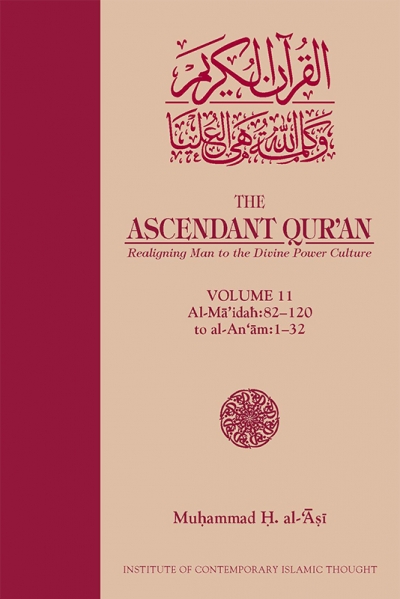



The Arabian potentates were livid at the temerity of Malaysia, Turkey and Qatar to hold an Islamic Summit in Kuala Lumpur. The Arabian rulers forced Pakistan not to attend but the summit also exposed their incompetence and subservience to imperialism and Zionism.
There are nearly 2 billion Muslims in the world occupying 20% of the Earth’s landmass but their plight is pitiful. Whose fault is it?
It is reflective of the depth to which the Muslim rulers have sunk that the imperialists and Zionists declare Jerusalem as the capital of Israel but there is not even a murmur of protest. Most of them did not utter even a word of protest at this insult to the Ummah and the first qiblah of the Muslims.
Muslims need to undergo a revolution in thought in order to determine their true destiny. This must begin by shedding Western ideas that they imbibed during the colonial era.
Seven years after the first stirrings of revolt against autocratic rulers in the Muslim East, while the movements have died down, it has emboldened people to stand up for their rights.
In this volume of the tafsir, The Ascendant Qur’an: Realigning Man to the Divine Power Culture, by Imam Muhammad H al-‘Asi, the last portion of Surah al-Ma’idah (ayat 82–120) and the first 32 ayat of Surah al-An‘am are covered. Surah al-Ma’idah was revealed in Madinah. As for Surah al-An‘am, a Makkan surah, there is general consensus among scholars that it was revealed in the last year of the Prophet’s (SAW) mission in Makkah before he was forced to seek sanctuary in Madinah.
For decades the Saudis have peddled their narrow-minded nonsense as ideology by disbursing petrodollars. Given its disastrous consequences for the Ummah, this no longer works even with its own agents.
As we mark the end of the month of Ramadan, we wish all our readers, supporters and friends a Happy Eid.
1You taught us that Muslims are capable of having an imam contrary to the beliefs of the traditional “Shi‘is” who maintain that there can only be one...
Several anniversaries fall in the month of March, both local and international but it is difficult to say anything positive about them. Let us review them. In March 1924, Mustafa Kemal abolished the khilafah, breaking the last organic link with the Islamic State established by the noble Messenger of Allah (s) in Madinah nearly 1,400 years ago.
Concepts are useful tools that aid our understanding. Children learn new concepts through association with things familiar; adults learn through experiment and experience. Just as children learn not to put their hand in the fire because it burns...
That sense of unity was based on a common faith of course, but was supported also by a number of other factors that have been lost...
1There is also another definition of the Ummah: that of the aggregate power of the political culture of Islam. Today this is virtually non-existent because Muslims are not in control of their destiny. At this level, we cannot speak of the Muslim Ummah per se because its power is fragmented into nation-states ruled by elites and political systems that are the product of colonialism.
What or who constitutes the Muslim Ummah and what problems does it face? In Part I, ZAFAR BANGASH, director of the Institute of Contemporary Islamic Thought, offers some reflections on the issue.
From the early days of human existence on earth, there have always been different ideas, opinions and ways of understanding between individuals. Doubtless, such is the demand of his nature as created by Allah, the Creator of everything, the Almighty. His nature also demands differences of attributes and character, such as bravery, justice and generosity, or jealousy and bigotry.
The last few years have been a period of exceptional turbulence in the Muslim world, even by the standards of an Ummah that has become accustomed to the buffets of history during the period of colonialist imperialism. In this extended essay, ZAFAR BANGASH, the Director of the Institute of Contemporary Islamic Thought (ICIT), reflects upon the nature of social change and lessons for Muslims today.
In December last year, AYATULLAH SAYYID ALI KHAMENEI, the Vali-e Faqih of the Islamic Republic of Iran, convened a meeting of Islamic movement leaders and representatives in Tehran. Here we reprint extracts from his talk to the gathering. It is impossible to imagine any other statesman in a position of authority in the Muslim world speaking so openly and frankly about the state of the world today, clearly identifying the Ummah’s errors and weaknesses, and the dangers and challenges facing us.
(Translated from Islamshinasi, Vol. 1, pp. 97 98.) THE IDEAL SOCIETY OF ISLAM is called the umma. Taking the place of all the similar concept‑, which in different languages and cultures designate a human agglomeration or society, such as "society," "nation," "race, “people,” “tribe," ”clan," etc., is the single word umma, a word imbued with progressive spirit and implying a dynamic, committed and ideological social vision.
1
